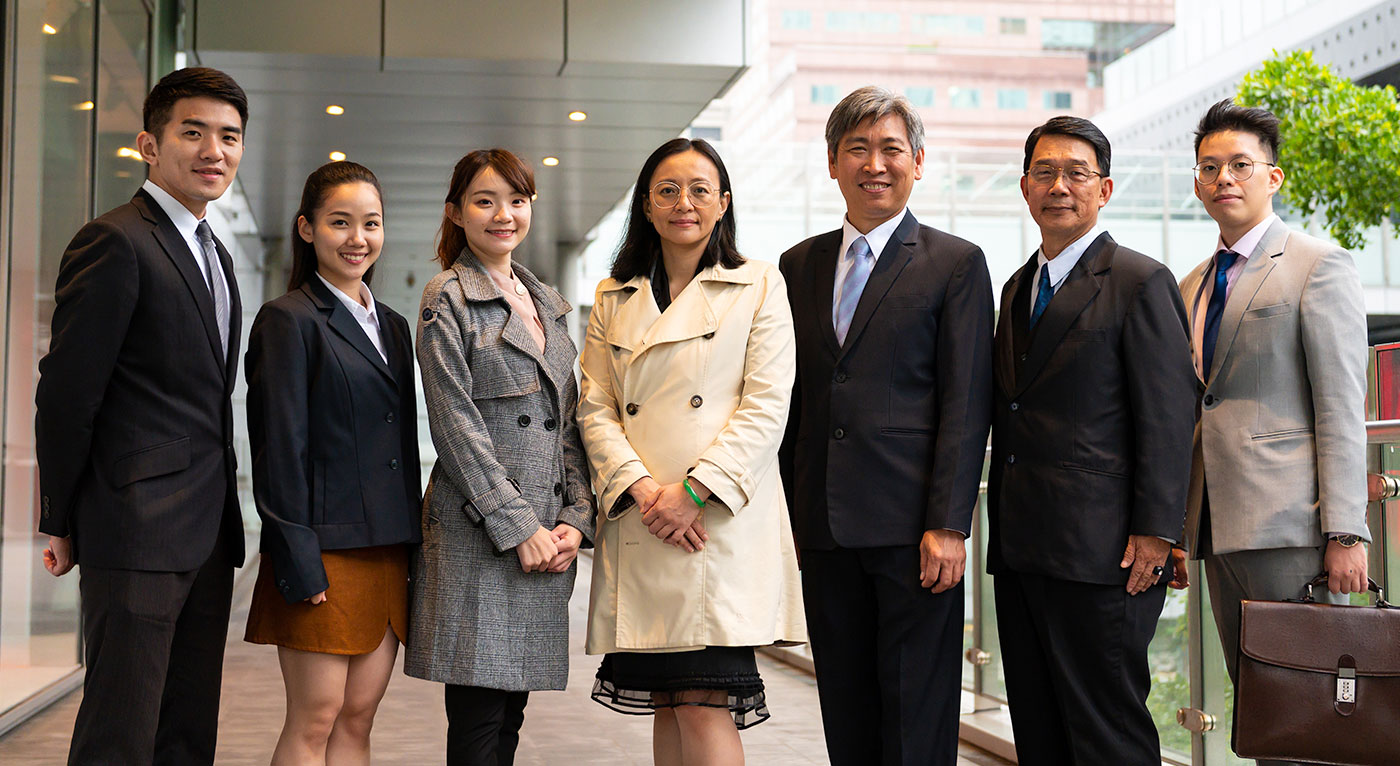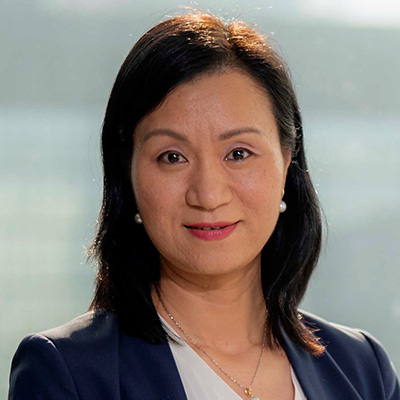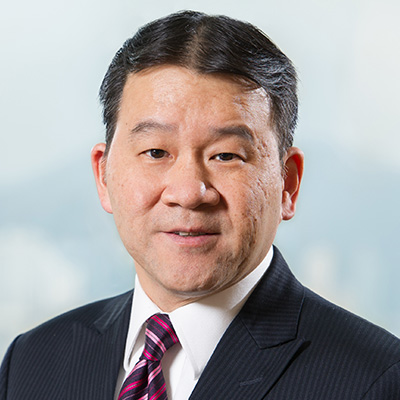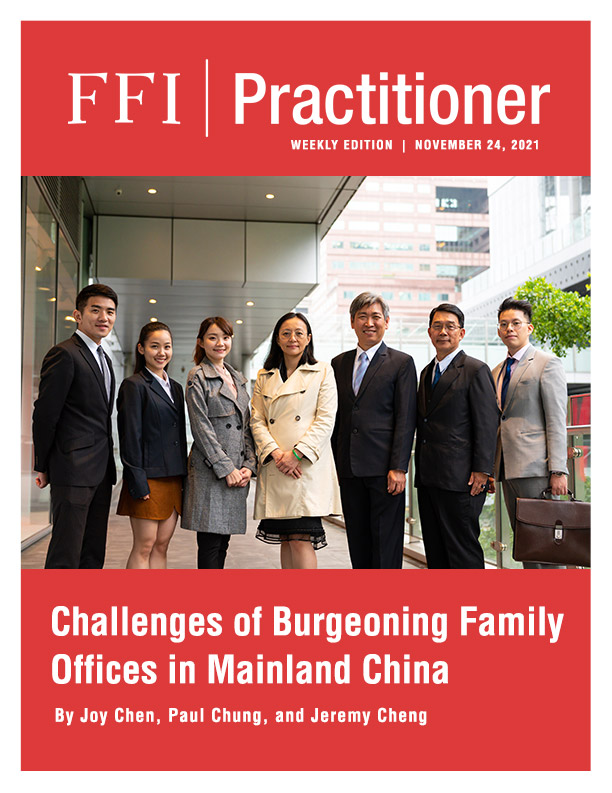
With 626 billionaires on Forbes’ World’s Billionaires list1 announced on April 6, 2021, Beijing has overtaken New York City to become home to most billionaires in the world. The rapid wealth increase brings a marked increase of family offices, as more and more business families are becoming cognizant of the benefits of establishing a family office to manage their private wealth and other family affairs. We want to share some key questions frequently discussed by family office advisors with their client families in their consideration of whether to use family offices to manage their clients’ needs.
Who are these potential family office clients?
The new Chinese billionaires are often seen as a homogeneous group, and their advisors tend to be less discriminating when proposing a family office solution to this group. We have observed three general categories of these new billionaires: the Technopreneur, the Family Clan, and the Rising Global Citizen.
- Technopreneurs
The Technopreneurs are new billionaires who earned their wealth from the booming technology markets. Technopreneurs tend to be 30 to 40 years old, with a young family and children who are still in school. They are focused on growing their business and tend to use a hands-on approach. They need help from their family office to manage their wealth, particularly to keep their personal wealth separate from corporate accounts. - Family Clan
These Family Clan billionaires took their businesses—likely those in more mature industries—to public listing as part of their leadership transition strategies. For some, going public may have even served as an exit process. These families set up their family office before the initial public offering. Many of these families find it more difficult to attract the rising generation to work in the operating business, given the traditional; well-established nature of their industry. The family office may be tasked with managing increasingly complex family relationships, or the family’s relationship with the founder’s close friends, who have also contributed to the success of the legacy business. - Rising Global Citizen
The last group of new billionaires may have acquired their wealth from their parents in the form of inheritance or gifts. Accordingly, this rising generation may have very different perspectives than their parents, and they shape their family offices based on their own worldview. Like many others around the world from the rising generation, they are well-educated and are concerned with global issues. Investing with meaning is an important goal, and they do not mind taking more risks if they see social benefits in their investment. They are more willing to invest into projects with high Environment, Social and Governance (ESG) ratings. At the same time, as technological natives, they are also more open to investing in disruptive technologies, although they may still be learning the domain-specific knowledge.
Sidebar
What kind of family offices do these newly-wealthy families need?
As is the case with any family of wealth, these new Chinese billionaires have a variety of considerations and goals in establishing a family office. The emergence of family offices in China began in the early 2010s. Those families with an existing operating business typically utilized an embedded family office (EFO) as a family investment platform. Increasingly, mature business families with significant wealth are now considering formalizing and institutionalizing their family offices, converting the EFO into an institutionalized single family office (SFO). Other families also consider joining a reputable multi-family office (MFO) that is managed by professionals.
Large financial institutions, including private banks and investment banks, have paid significant attention to these family offices and have lined up experts to establish MFOs as value-added services to their VIP clients. In our experience, the rise of private capital, the growing involvement of rising generation family members, institutionalizing of investments, privacy and confidentiality, tax considerations, and the need to improve operational excellence are these institutions’ key motivations for establishing family offices.
Advisors should facilitate and engage in discussions regarding their client families’ vision, mission, and values before they make an informed decision as to which type of family office may best align with their clients’ needs. For those who have been using EFOs, advisors should also solicit discussion on whether families should formalize and/or institutionalize their family office.
What services should the family office provide?
Most mainland Chinese families who have made their fortune in the last four decades are currently planning to transition from the first generation (G1) to the second generation (G2). Growing the family’s wealth is still the major goal of these families’ family offices, and it has an impact on the decision of whether to adopt the less-formal Chinese family office structure, which has typically allowed for the quick decision-making necessary to grasp investment opportunities. We have also observed a few examples of the extension of an SFO to an MFO, because superior financial performance has attracted the co-investment of family friends and the like.
Advisors should raise the concept of the “growth vs preservation” mentality and introduce to their clients the many non-financial functions that family offices can serve, such as risk management, global compliance, family governance, philanthropy, and next-generation education. As there is a shortage of experienced family office experts in the Chinese market, less sophisticated family offices might consider an outsourcing model to achieve a more cost-effective outcome. A virtual family office (VFO) may be another option.
Do these family offices need a structured governance system?
Unlike family offices with greater multi-generational engagement, mainland China family offices established by newly-wealthy families mainly involve only G1 and G2. Accordingly, the usual family office mandate to oversee an extensive control mechanism for a broad family enterprise becomes less relevant. Advisors should carefully consider whether to propose a more structured governance system for these smaller families. Alternatively, shifting the family focus to relational governance, where keeping a healthy and open dialogue is more important than running through very structured processes to make decisions, may be more appropriate. The rule of “form follows function” should apply here, but a suitable mission statement, as well as succession structures, managing rights and responsibilities with family trust arrangements, and regular family meetings will be useful for the long term.

How can advisors honor traditions while inspiring innovation for these family offices?
With the long history and deep traditional culture in mainland China, the value statement of family offices is normally guided by the core value of the founder’s family, such as giving, sharing, collectivism, and community responsibilities. With the significant digital transformation and increase in remote working environments in mainland China, family offices prefer to use digital solutions to avoid asymmetric information sharing and to improve transparency, efficiency, and privacy. Balancing tradition with innovation is an important challenge for family offices.
Advisors should help orient the client family for a paradigm shift, while honoring the glory of the past. We have seen VFOs and outsourced Chief Investment Officers become common in mainland China. Philanthropy, ESG, and impact investment have attracted more and more attention in the market catalyzed by the pandemic.
How to grow the rising-generation leaders in the family office?
Most Chinese family offices are led by family members. Whether the family is still engaged in the management of the operating business can influence how the family office is designed and who manages it. The rising generation may take a bigger role in the family office, although patriarchal control is still prevalent. It can be a challenge to determine how the rising generation, who has less commercial experience, can engage their necessary talents and work with partners to make wise investment decisions.
Advisors need to be able to provide resources for mentoring or coaching to the rising generation in areas from investment to leadership and management. In seeing a more holistic picture, advisors should help the family plan for the true engagement of the rising generation and for supporting them in the challenges they will face.
Are the advisors and family offices acutely aware of the different challenges in a dynamic market environment within the country?
The fortunes of mainland China families and their family offices have been accumulated in a relatively short amount of time, and there is currently a lack of experience in generational transition. They have only recently realized the importance of governance, risk management, and wealth transition due to the disruptions caused by geopolitical conflicts, policy updates, and the pandemic. They are fast learners and are keen to explore new opportunities, such as the favorable tax regimes2 in offshore jurisdictions like Hong Kong SAR and Singapore, as well as the domestic incentives in Hainan Free Trade Port.
Advisors and family offices should have a solid understanding of the client family’s priorities and a firm knowledge of government policies to assess their impact on the client family’s assets, holding structure, investment portfolio, tax residency status, and philanthropy roadmap. By consulting local tax and legal professionals for proper solutions, advisors can align the family office strategy with the client family’s directives.
We hope the questions we have raised can help advisors and their client families as they decided whether to utilize family offices and the factors we’ve observed that influence mainland Chinese family offices can serve as example for advisors around the world.
Disclaimer: The views reflected in this article are the views of the author and do not necessarily reflect the views of the global EY organization or its member firms.









